[Herald Review] In ‘Little Garden,’ grannies learn to document own lives on video
By Kim Da-solPublished : July 31, 2023 - 16:22
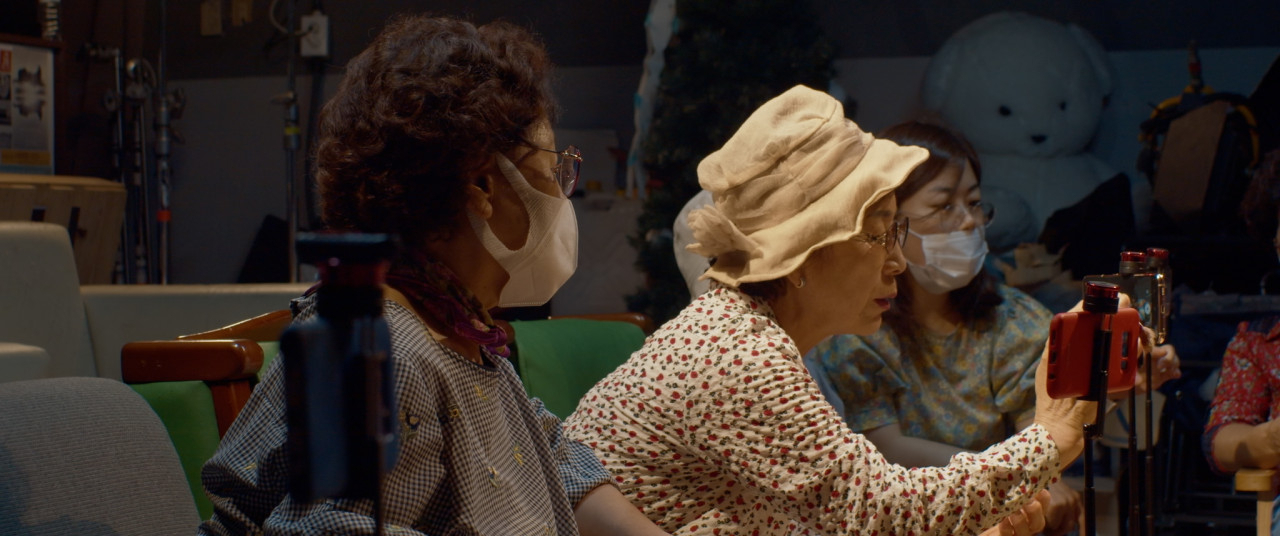
In Myeongju-dong, an older neighborhood in Gangneung, Gangwon-do, a group of eight older women who have lived in the area for over 30 years and have an average age of 75 among them gather to go over video footage they took over the past week.
Besides meeting friends, volunteering, doing housework and gardening, these women have a new thing to cross off their to-do lists: shooting moments of their everyday lives with their smartphones.
It is part of a community center program. Some of the women take close-up video of the flowers they care for in their gardens. One takes video of herself working in her vegetable plot with her husband. They review their videos together and evaluate each other’s work but most of the time, they laugh at how funny they look on camera.
One day, they’re given the task of shooting when they call their children and ask if there has been anything they have done to disappoint them. One woman calls her son but, feeling embarrassed, simply laughs without being able to ask him. Her son then responds by asking if there is anything wrong with her. Another woman asks her daughter the same question, and the daughter says, “Nothing.” Why? “Because you were too busy and we did not spend any time together,” the daughter answers.
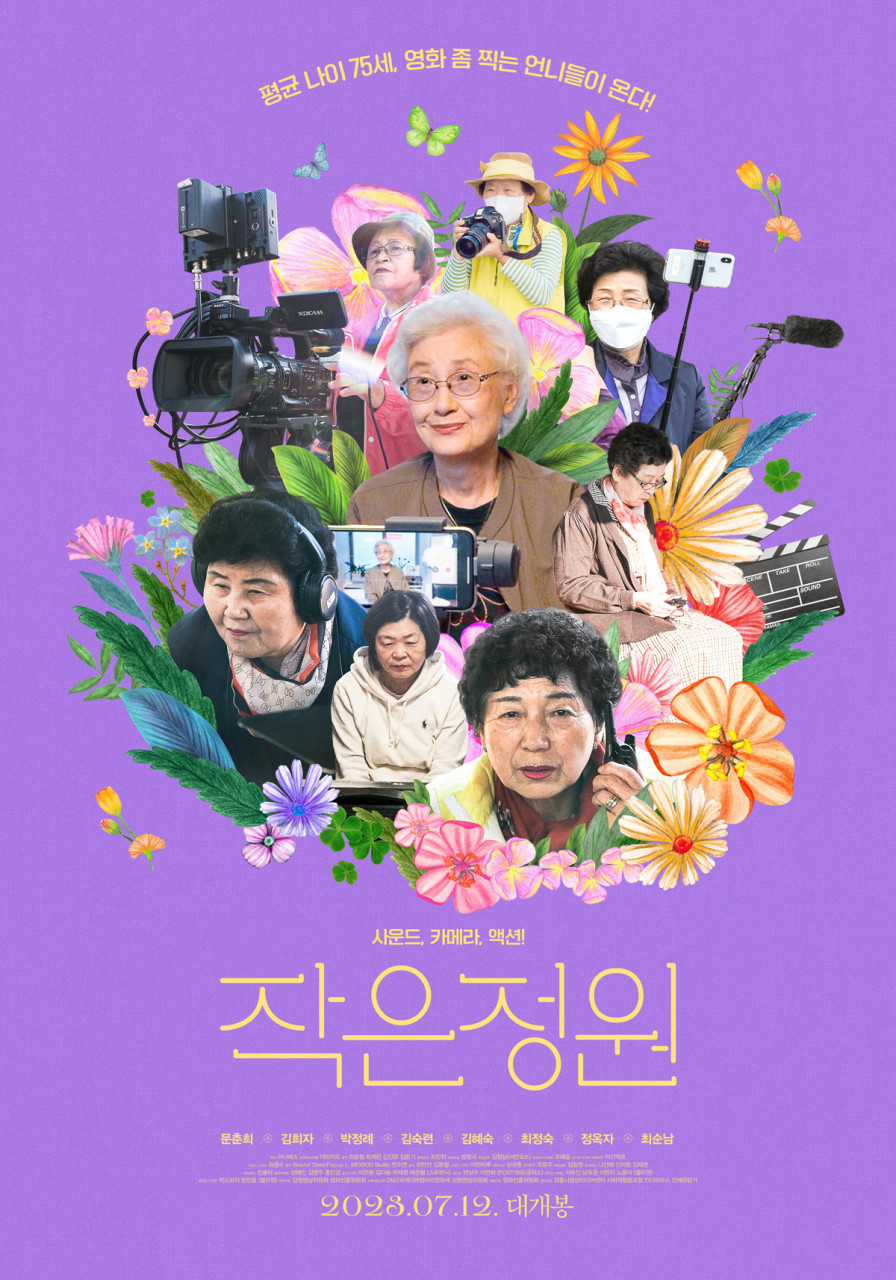
“Little Garden,” a documentary film by director Mario Lee which opened in local theaters on July 12, captures such small but meaningful moments of these older women's lives. Lee calls the film a “grandmother’s coming-of-age film.”
According to Lee, the idea of the film began with the simple curiosity about how these older women might try something new for the first time in their lives, despite being in their 70s.
“I began living in Gangneung in 2009 and heard that there was a community program that teaches grandmothers about taking video with their smartphones. I was surprised at how grandmas could still have the attitude to learn something new even at that age, so I wanted to make their stories into a film,” Lee told The Korea Herald after a screening held in Seoul on July 16.
The film production crew members, who followed the women to capture their efforts to shoot video, refer to each of them as “eonni,” meaning “older sister” in Korean.
“The way we called them ‘eonni’ set the tone of the film. Unlike in Korean society where the elderly are frequently called ‘eoreusin’ or ‘seonsaengnim’ – meaning ‘elder’ or ‘teacher’ – we wanted to call the women ‘eonni,’ even though at first they didn’t feel close enough to do that with, but they really loved it eventually,” Lee told The Korea Herald.
Films about people’s everyday lives and challenges -- those of women, seniors and minority groups in Korean society -- are nothing new in the local film scene. There are films like the 2008 hit documentary film, “Old Partner,” depicting the friendship and family love between a man in his 80s and a 40-year-old cow, as well as director Kim Jae-hwan’s “Granny Poetry Club” (2018).
“From what I see, these grandmothers’ daily life is actually very similar day to day. One day they go out to eat, play Go-Stop (a Korean card game) and then return home to take a nap. They go to their gardens, cook, eat and sleep. When you look at the clips that the eonni took, you are sometimes really hit hard with the reality. As a director, however, I wanted to delve into how their routines function in their lives,” said Lee.
The film is also about mothers’ unconditional love for their children.
“Some of the eonni in the film didn’t even tell their children about their theatrical debut. Maybe they thought that (starring in a film) could cause a nuisance for their children,” said Lee.
But other eonni said that deep-rooted wounds they don’t even know were there have healed by them standing in front of the camera and talking about their pasts, he added.
“It was worth it for me as a creator, to be part of the lives of others, feeling their lives are worthwhile through a small accomplishment they made such as being featured in a film about their new challenge. I feel proud of it,” said Lee.
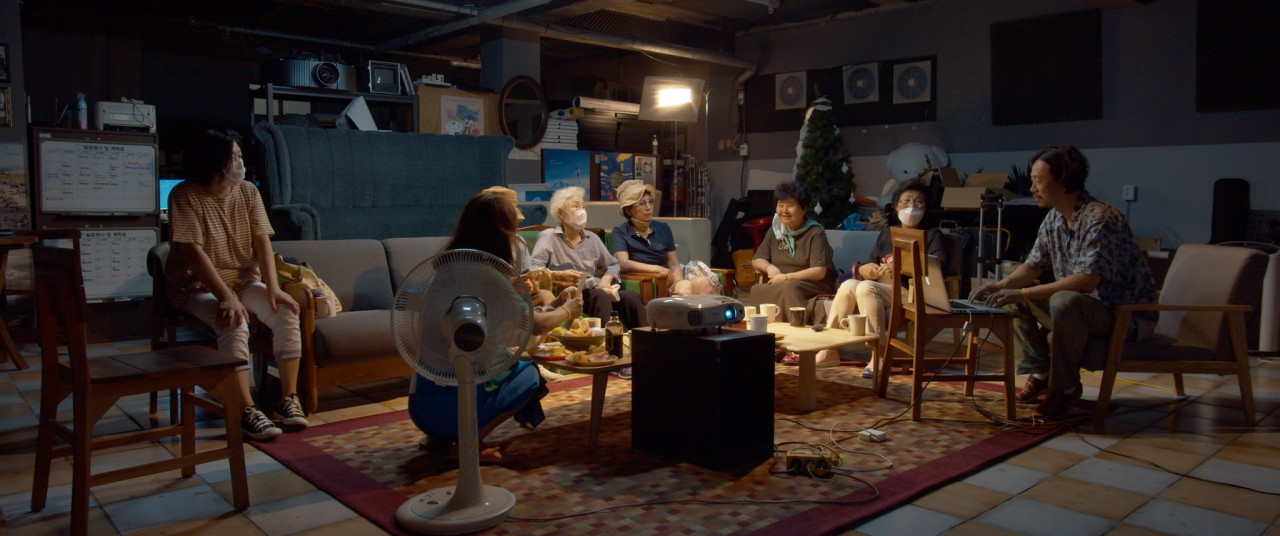
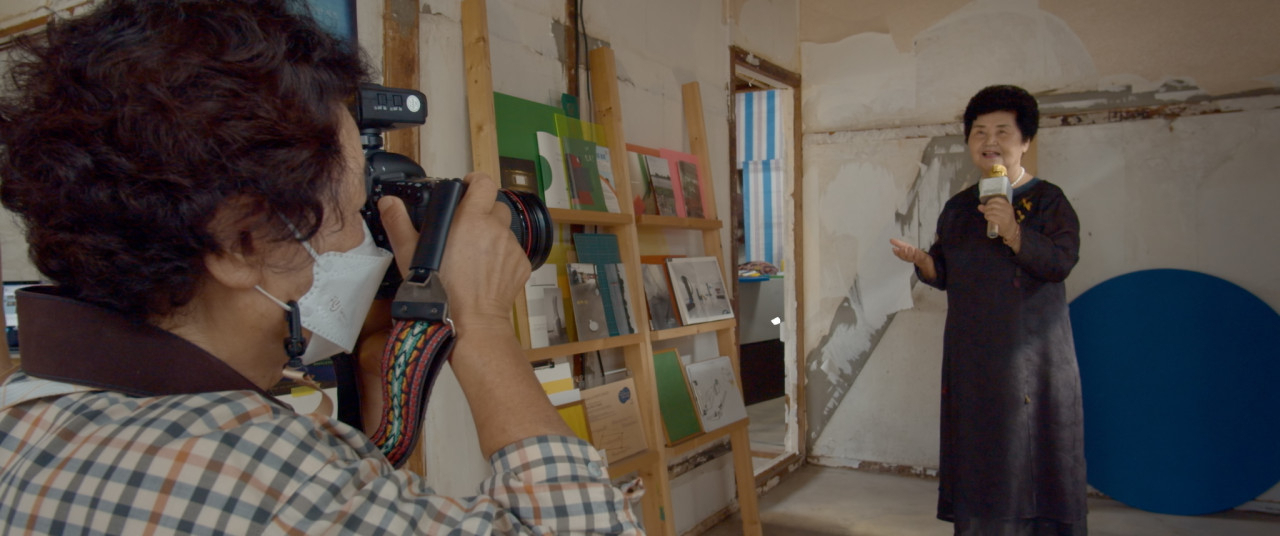






![[KH Explains] No more 'Michael' at Kakao Games](http://res.heraldm.com/phpwas/restmb_idxmake.php?idx=644&simg=/content/image/2024/04/28/20240428050183_0.jpg&u=20240428180321)








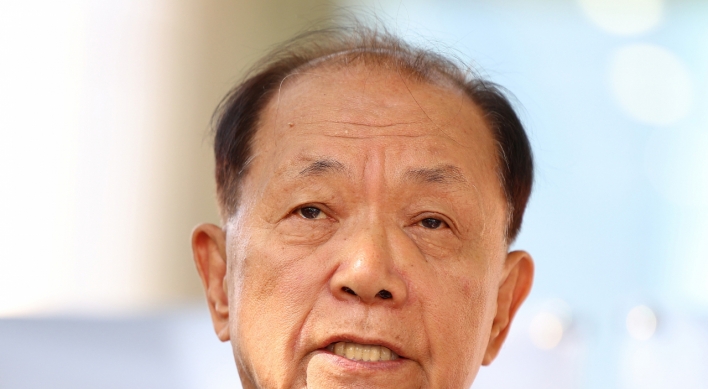


![[Herald Interview] Mistakes turn into blessings in street performance, director says](http://res.heraldm.com/phpwas/restmb_idxmake.php?idx=652&simg=/content/image/2024/04/28/20240428050150_0.jpg&u=20240428174656)
